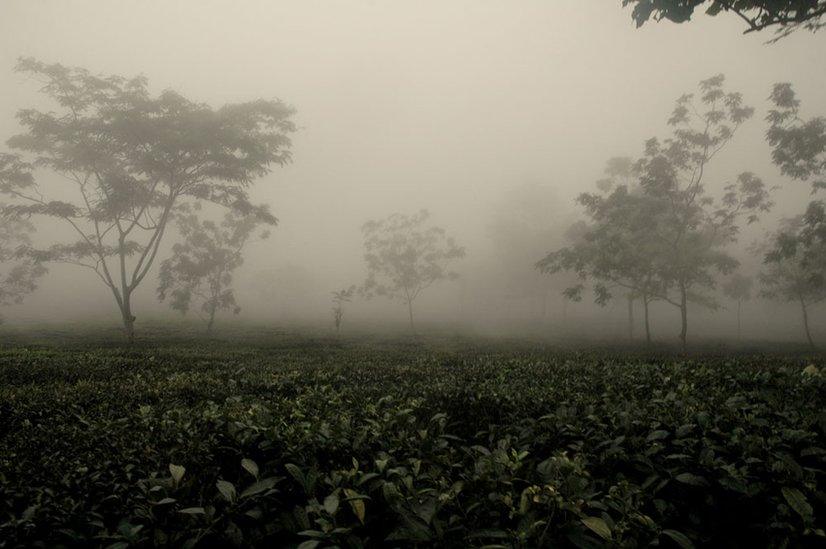In pictures: Why is Darjeeling tea the fine wine of teas
- Published

For tea drinkers, it doesn't come much better than a cup of hand-picked Darjeeling - India's best-known tea, grown in the mountains of the eastern state of West Bengal. Photographer Arindam Mukherjee chronicles life on a tea garden in Darjeeling.
Darjeeling produces about 10,000 tonnes of tea every year and employs about 45,000 women who work as tea pluckers.
Darjeeling tea, often called the fine wine of teas, is famous for its special aroma and is preferred by connoisseurs around the world.
Plucking tea needs precision as only the tender shoots of the plant are picked. Women workers begin plucking early in the morning when the leaves are still covered in dew.
Both young and old women are involved in tea plucking.
The leaves are weighed at the end of the day and the pluckers are paid for the quantity they bring in.
Darjeeling has 87 tea estates, stretching over hundreds of acres of land, where the region's popular black teas have been grown since the early 1800s.
Darjeeling tea, like champagne, enjoys a geographical indicator status and cannot be grown or manufactured anywhere else in the world.
The tea produced in the region is processed and manufactured in factories in Darjeeling before it is sent to other parts of India and exported around the world.
The tea is tested by expert tasters who certify it for its distinct taste and aroma.